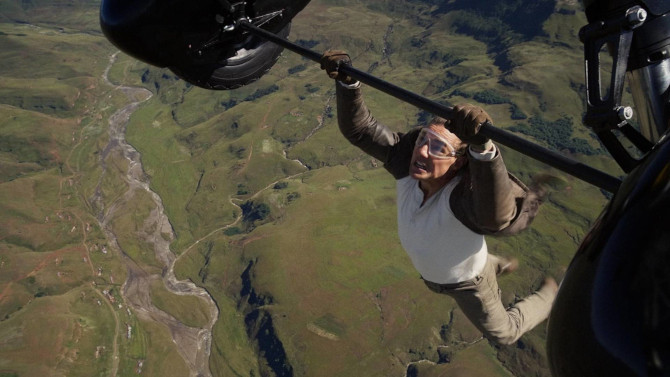
An Impossible Mission
How do you wrap up a franchise like Mission: Impossible? That is, if this even is the final installment... as they’ve made it sound (while at the same time, stars not named ‘Tom Cruise’ pipe up and suggest that might not be so). It has been twenty-nine years, with different writers and visionary directors – from twisty Brian De Palma and the action hair stylings of John Woo, to the lens flares of J.J. Abrams and animation expert Brad Bird, it was only about ten years ago that the franchise decided to opt for The Usual Suspects scribe Christopher McQuarrie for the final four. To return to that opening question once more, you could end with a Sopranos’ style cliffhanger, simply make another entertaining movie like the many before – like Everybody Loves Raymond did it with its final episode, or try to tie everything up in a neat little bow by bringing everything together as the Daniel Craig era did with James Bond. Well, it is definitely more along the lines of the latter example, with some distinct differences.
-
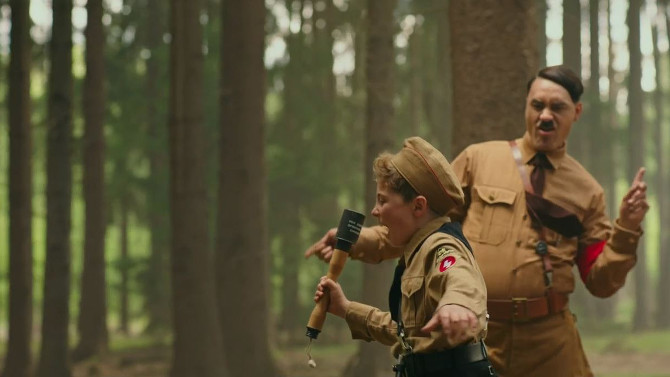
Down the Rabbit Hole
Jojo RabbitNovember 27, 2019If you’ve ever wanted to see a film where a young boy’s imaginary friend just happens to be Adolf Hitler, then 2019's Jojo Rabbit is for you. Based upon Christine Leunens’ novel “Caging Skies”, Taika Waititi (What We Do in the Shadows; Thor: Ragnarok) adapts and directs this unique satire on World War 2 era Germany. Amplifying an already ludicrous Nazi doctrine, Waititi transports us into the world of young Jojo (first time actor Roman Griffin Davis – a terrific find), a slightly mousy boy heading off to Hitler Youth camp. Completely immersed in a society of indoctrination, it is perhaps no surprise that his poor-advice giving imaginary friend is the Führer himself, Adolf Hitler (Taika Waititi) – in many ways, a skewed stand-in for his missing father (who is off somewhere during the war).
-
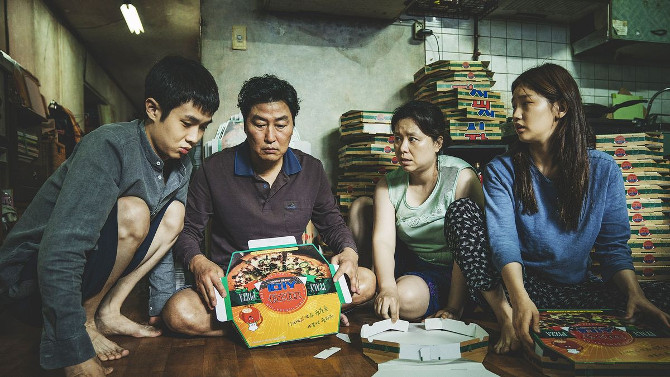
Upstairs Downstairs
ParasiteNovember 24, 2019One of the more unique films I’ve seen in a longtime, 2019's Parasite, co-written and directed by Bong Joon Ho (Snowpiercer), is a twisty movie best experienced without knowing too much – meaning that this will be as close to a spoiler free review as possible. Like many of his movies, Parasite (which he wrote along with Han Jin Won) deals with class divisions – the divide between rich and poor. In Snowpiercer, he adapted a novel that imagines a post-apocalyptic world where everyone left living resides in a specific compartment of a train depending on his or her wealth, yet this picture is grounded in a certain reality.
-
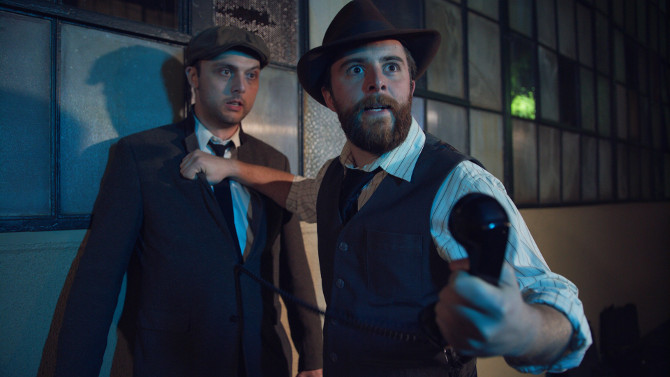
Word Up
Word on the StreetNovember 19, 2019Like some sort of quirky hybrid of a Dr. Seuss story and an Abbott and Costello comedy sketch transported to the dark alleyway of a film noir, 2019's Word on the Street is a five minute foray into the wacky world of English wordplay. Written and directed by Austin Hillebrecht and Sean Parker, the former plays flat cap wearing Bugsy, a low-level ruffian who has heard that the word on the street is “implication”. Meeting up with fellow criminal Rat (Conor Eifler), the fedora wearing fella claims that it is “insinuation”.
-
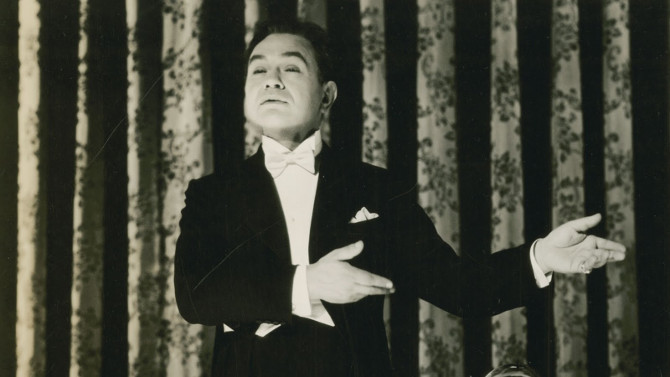
Twinkle Twinkle Little Stars
Night Has a Thousand EyesNovember 17, 2019Twisting the twinkling night sky into a harbinger of doom, 1948's Night Has a Thousand Eyes is a classic film noir that delves into the inexplicable realm of parapsychology. Based upon a novel of the same name written by iconic crime scribe Cornell Woolrich (and adapted by Barré Lyndon and Jonathan Latimer), John Farrow (Where Danger Lives; Around the World in 80 Days) directs this intriguing story. Opening in dramatic fashion, we witness a last second rescue of a young woman attempting suicide late one night at a bustling industrial railway depot (a stunning visual sequence).
-
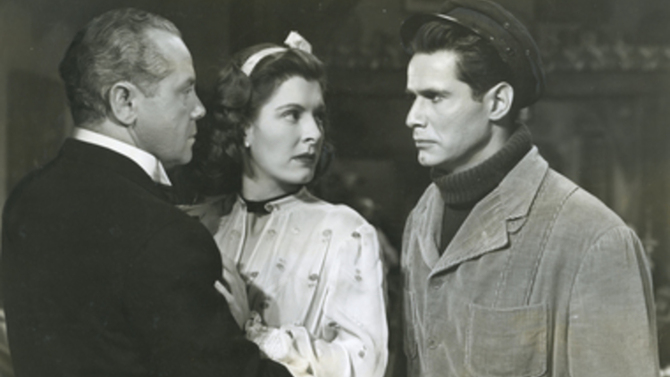
French Kiss… Of Death
So Dark the NightNovember 15, 2019An overtly cheerful vacation romp to the French countryside. . . until it isn’t, 1946's So Dark the Night, directed by Joseph H. Lewis (Gun Crazy), transforms from unexpected romance to film noir murder mystery in the blink of an eye. Following famous Parisian detective Henri Cassin (Steven Geray), the man is finally getting his long awaited vacation. Though those within the station talk about his recent stress level, the portly, closing-in-on-retirement detective seems in very good spirits.
-
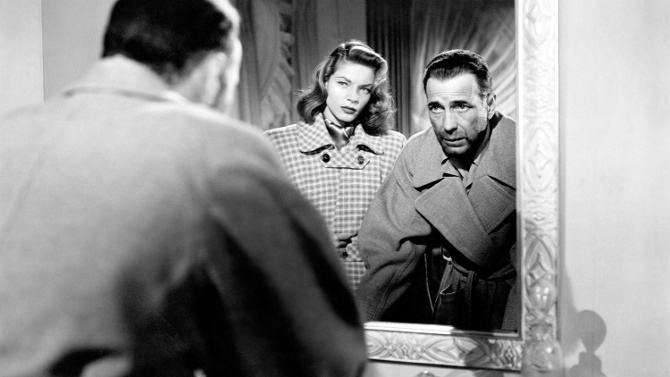
Saving Face
Dark PassageNovember 12, 2019The third of four films made by the husband and wife dream team of Humphrey Bogart and Lauren Bacall, 1947's Dark Passage, written and directed by Delmer Daves (Destination Tokyo), is perhaps one of the most unique film noirs of the classical era. Not revealing star Humphrey Bogart’s face until sixty-two minutes into the movie, studio head Jack L. Warner (Warner Bros), upon learning this, was absolutely furious. . . but, the film was already so far into production that nothing could be done.
